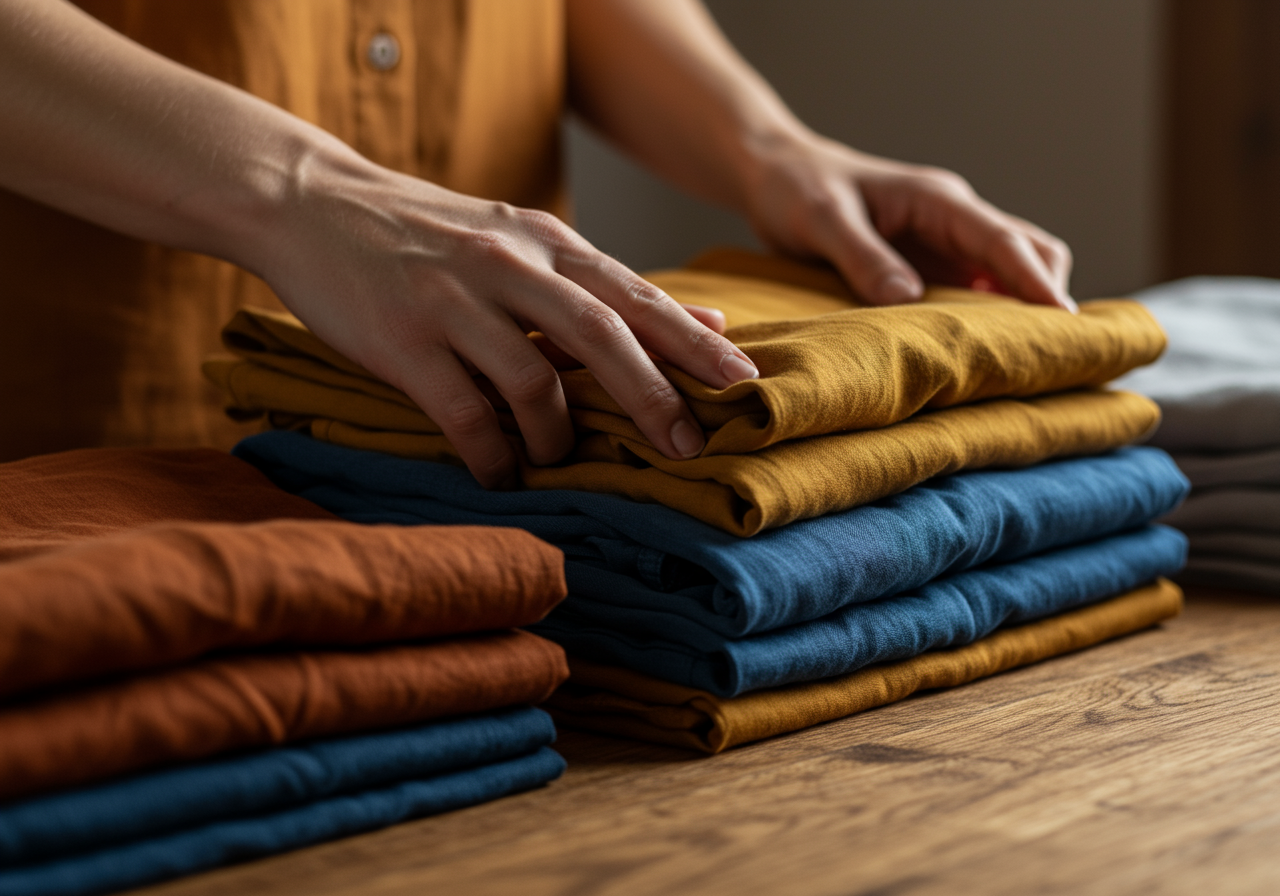As eco-conscious renters, we face unique challenges in reducing our environmental impact. We may not be able to install solar panels or build a compost bin, but one area where we can make a real difference is in how we care for our clothes. Extending the lifespan of our clothing is one of the most effective ways to reduce textile waste and minimize our fashion footprint. And the good news is, it doesn’t require major renovations or a huge investment – just a few simple changes to our laundry routine.
Wash Less, Wear More
It sounds obvious, but the single biggest impact you can have is to simply wash your clothes less often. Over-washing fades colors, weakens fibers, and wastes water and energy. Unless your clothes are visibly soiled or smell, air them out between wears. Jeans, sweaters, and jackets can often go several wears without needing a wash. A good rule of thumb: if it doesn’t smell, don’t wash it!
Spot Treat Like a Pro
Spills happen. Instead of throwing the entire garment in the wash, learn to spot-treat effectively. A little bit of gentle detergent or stain remover applied directly to the stain can work wonders. Gently blot the area (don’t rub!) and let it sit for a few minutes before rinsing thoroughly. This not only saves water and energy but also preserves the fabric of your clothing.
Mastering the Laundry Lowdown
When you do need to wash your clothes, there are several eco-friendly practices you can adopt:
- Wash Cold: Heating water accounts for a significant portion of laundry’s environmental impact. Most clothes can be washed effectively in cold water, especially with modern detergents. Reserve hot water for heavily soiled items like towels or bedding.
- Choose Eco-Friendly Detergent: Look for plant-based detergents that are free of harsh chemicals, phosphates, and artificial fragrances. These are gentler on your clothes and the environment. Consider using detergent sheets or pods to avoid unnecessary plastic packaging.
- Line Dry Whenever Possible: Dryers are energy hogs. Whenever weather and space permit, line dry your clothes. The sun is a natural disinfectant and brightener, and air-dried clothes often have a fresher scent. If you’re limited on space, consider a foldable drying rack that can be tucked away when not in use.
- Be Mindful of Your Washing Machine: Wash full loads to maximize efficiency, but don’t overload the machine. Overloading can prevent proper cleaning and put extra strain on the motor. Consider investing in a mesh laundry bag to protect delicate items and prevent microfibers from shedding into the water system.
The Power of Proper Storage
How you store your clothes can also impact their lifespan. Follow these tips to keep your clothes looking their best:
- Fold Knitwear: Hanging sweaters can stretch them out of shape. Instead, fold them neatly and store them in drawers or on shelves.
- Button Up Buttons and Zip Up Zippers: This prevents snags and keeps clothes from getting caught on each other.
- Give Your Clothes Some Breathing Room: Avoid overcrowding your closet. Cramming too many items together can wrinkle clothes and make it harder to find what you’re looking for.
- Use Natural Moth Repellents: Protect your clothes from moths with cedar blocks or lavender sachets instead of harmful chemical mothballs.
Repair and Repurpose
Learn basic mending skills like sewing on buttons and patching small holes. This can significantly extend the life of your clothes and prevent them from ending up in a landfill. When a garment is truly beyond repair, consider repurposing it into something new, like cleaning rags or reusable shopping bags. Get creative and give your old clothes a new life!
By adopting these simple yet effective habits, you can significantly extend the life of your clothes, reduce your environmental impact, and even save some money in the long run. It’s a win-win for your wardrobe and the planet.




